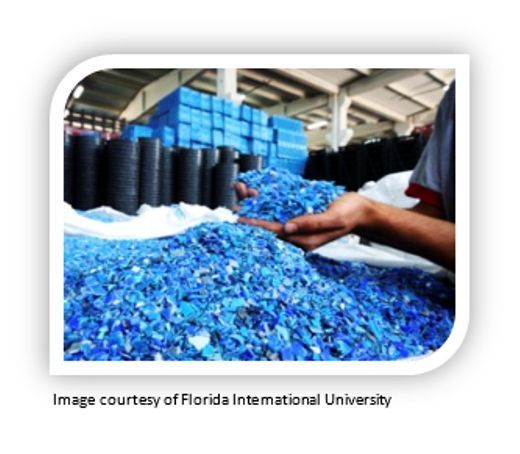Careers in Materials Science

Image provided by: University of Sheffield
Overview
From metals, rubbers, paints and even synthetic tissues, companies are constantly researching to improve materials for the growing needs of society. Their employee demographic consists of scientists with educational backgrounds ranging from chemists to physicists with bachelors to Ph.Ds. A material scientist’s main objective is to understand the microscopic properties of the material in question in order to achieve the desired macromolecule properties.
Work Environment

Laboratory
Entry level material scientists will likely be introduced to the field as a laboratory assistant. This aspect of the field focuses on small scale processes that can hopefully be applied to large scale manufacturing. Employees will constantly encounter unique experiences and challenges making each day original and engaging. Although responsibilities come with time and experience, it is recommended to experience this are of the field first to gain critical skills applicable to the career.
 Manufacturing
Manufacturing
The laboratory and manufacturing portions of the field go hand in hand. The roles of a material scientists focused on the manufacturing processes of a product are to collect, analyze, and draw conclusions on data from product performance. In addition, they work directly with engineers Experience is required because there are more critical responsibilities that have a direct effect on the growth of a product.
 Marketing
Marketing
Material scientists have a niche in the marketing and customer relations section of the materials industry. Manufacturing companies constantly encounter with customers who are either well versed in their products or may require a product they are unfamiliar with. None the less, a material scientist’s key responsibility in this case is to listen to a costumer’s request and provide them with the appropriate product or modifications to an existing product.
Career Path
Materials scientist can enter the workforce with any level of education past a bachelor’s degree in one of the major sciences or engineering. It is likely that the beginning of one’s career will be entry level so that experience can be gained before progressing further in the field. Experience leads to independence which can then develop into a specific expertise. This makes internships and job experience related to the field very helpful for entry level positions.
Expertise in the field requires higher education through degree programs offered by universities, or specific training provided by an employer. It can allow for better opportunities for a career, but it also restricts flexibility. It is highly advised by current materials scientists to gain experience prior to acquiring a specialization.
Entry Level
Commonly, engineering, chemists, and physicist degrees are most preferred in the materials science field. At least a bachelor level is required, but no licensing or special training is necessary.
Advancement
First time employees will likely be supervised by a senior to determine the validity of their experience and progress. Unless already acquired, prospective employees will be advised to achieve their masters or PhD in a degree related to the field. However, specialized train can be provided based on the company.
Expertise
Those with many years of experience will focus their education on a specialty within the field. This has the potential to earn them a specialist position in research, marketing, or supervisor.
Employment and Salary Statistics
The materials science industry is dominated by research a service development for products. Companies rely heavily on sophisticated and well-practiced scientists who can generate new ideas and progress them through development. The industry is currently at a steady climb with employment demands rising yearly. Salaries vary depending on the company, but the trend of higher pay with more experience is consistent. The longer one works in the specific field, the more desirable they become.
By: Kyle Hoyt
